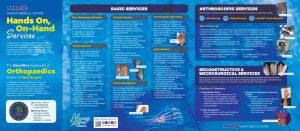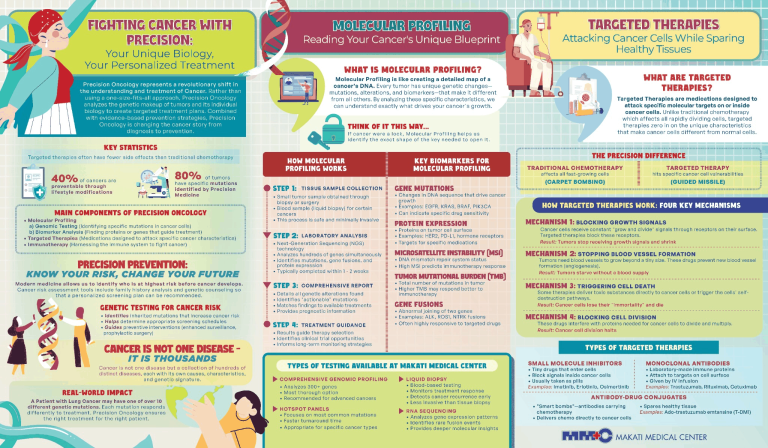
Malaria and dengue are major threats to global public health. According to the World Health Organization (WHO), there are approximately 100 to 400 million dengue infections per year, with half of the world’s population being at risk. Meanwhile, the latest report from the WHO states that there were nearly 229 million cases of malaria worldwide in 2019.
Both diseases are common in tropical and sub-tropical countries like the Philippines, as well as other Southeast Asian regions. As recently as 2019, the Philippines recorded its worst dengue outbreak in years.
As it remains endemic in all regions of the country, dengue proves to be among the Philippines’ biggest public health concerns. Although there have been significant strides in reducing the number of cases and deaths due to malaria in the past few years, there is still a long way to go before the Philippines successfully eliminates the disease.
If not managed properly, both malaria and dengue can lead to serious complications and possibly even death. The prevention and control of these diseases are hinged on proper awareness, beginning with understanding how each is transmitted.
While they are often lumped together, malaria and dengue are entirely different but with one common cause: a mosquito bite.
A Tale of Two Mosquitoes
For both dengue and malaria, there is a single mode of transmission—through a mosquito vector. These arthropods are the exclusive vectors of both diseases.
The vectors are necessary vehicles for transmitting the diseases, which means that a person can neither get infected with malaria nor dengue through another person. They are transmitted solely through the bite of an infected mosquito, but each disease is caused by different mosquitoes.
People get malaria after an infected female Anopheles mosquito has bitten them. This genus is generally known to be active between sunset and sunrise and has a peak biting time. While some species feed on animals, those feeding on humans are the malaria vectors and, thus, more dangerous.
The female Anopheles mosquito transmits the Plasmodium parasite through blood meals. Temperature is a particularly important factor in the parasite’s growth cycle, so malaria is more prevalent in warmer regions. Anopheles mosquitoes are capable of breeding in freshwater and are typically dark brown to black in color.
When it comes to dengue, the Aedes mosquitoes (Aedes aegypti or Aedes albopictus) are the responsible vectors. Some distinguishing features of this mosquito are its lyre-shaped markings, banded legs, dark color, and narrow body. Apart from dengue, Aedes mosquitoes are also primary vectors for diseases such as chikungunya and yellow fever.
Like the Anopheles and other mosquitoes, only female Aedes mosquitoes take blood meals from humans. They are typically more active during the daytime, and their eggs thrive in containers of collected water. Their species can survive year-round.
Viral vs. Parasitic Infection
A key differentiation is that malaria is an infectious disease caused by a parasite, while dengue is a viral infection.
Malaria is transmitted only by female Anopheles mosquitoes because they depend on blood meals for egg production. Once an infected female Anopheles mosquito initiates a blood meal on a non-infected human, it injects the Plasmodium parasite through its salivary glands, beginning its life cycle and maturing in the human body.
This parasite initially replicates in the liver. Once its life cycle reaches the blood stage, where the parasite begins to affect the red blood cells, clinical manifestations take effect in the human host. The incubation period takes anywhere from seven (7) to 30 days.
Dengue is a disease caused by the dengue virus (DENV), which is transmitted by the Aedes mosquito.
When a human is infected through the bite of an infected Aedes mosquito, they develop viremia, a condition where the blood contains a high level of the dengue virus. In this period, the mosquito takes a blood meal from the infected human, and the virus replicates in the mosquito.
Once the mosquito is infected, it can pass the virus to non-infected humans through a bite for its entire lifespan (about a month), and continues the cycle. Unlike malaria, the incubation between the bite and the first symptoms is shorter for dengue, at about four (4) to 10 days. Currently, DENV has four serotypes or variants that can infect humans. Dengue can range from a mild to an acute flu-like illness.
Symptoms and Treatment
Malaria
According to the WHO, malaria is preventable and curable, though it may be difficult to trace as the parasite can enter the body and stay dormant for long periods. As it is a febrile illness, fever-like symptoms such as the following typically manifest:
- Chills or feeling shivery
- Nausea and vomiting
- Headaches
- Muscle and joint pains
- Rapid breathing and heart rate
- Diarrhea
- Fatigue
- A temperature of 38°C up to 41°C
Diagnostic examinations, such as blood tests and other tests for possible complications, will be done. Treatment for malaria involves prescription drugs to kill the parasite. A vaccine, called the RTS,S, is also available. It can reduce severe to life-threatening malaria.
Dengue
The WHO classified the disease into dengue (with or without warning signs) and severe dengue. At the onset, some infected people show zero to mild symptoms. Once at the febrile stage, with a temperature of 40°C, symptoms such as the following should be more closely observed:
- Rashes
- Swollen glands
- Nausea and vomiting
- Aches and pains (joint and muscle pains, pain behind the eyes)
- Severe headaches
Some cases progress into severe dengue or the critical phase, and is considered a life-threatening emergency. Warning signs for severe dengue include:
- Difficult or rapid breathing
- Blood in vomit, urine, or stool
- Bleeding underneath the skin, which appears bruise-like
- Bleeding from the gums or nose
- Fatigue, irritability, or restlessness
Since the disease is viral, there is no specific cure for dengue. For symptoms such as fever, aches, and pains, medication such as acetaminophen or ibuprofen may be prescribed. Once any warning signs appear, immediate medical care is a must.
Danger from Just One Bite
In the case of both malaria and dengue, a single bite from a mosquito vector is enough to threaten an otherwise healthy person’s life. While taking appropriate measures to prevent mosquito bites is key, cases remain common in tropical areas like the Philippines.
The diagnosis and treatment of dengue or malaria deserve immediate, quality medical attention. For assistance with the diagnosis, management, or treatment of these diseases, as well as other health concerns, reach out to Makati Medical Center.










